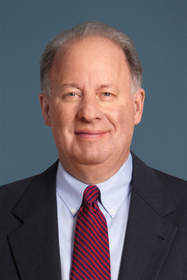DARIEN, CT--(Marketwired - Sep 10, 2013) - Rhinoplasty is often seen as a way in which patients can achieve more harmonious and proportionate facial features. However, in some cases, patients may have nasal surgery that results in a less than satisfactory outcome in regards to their specific goals. Dr. Fredric Newman is a board-certified plastic surgeon in Connecticut who has three decades of experience in cosmetic and reconstructive surgery. At his practice, he performs rhinoplasty revision surgery to help patients living with the outcome of a failed or unsatisfactory rhinoplasty procedure ultimately achieve the results they desire.
In a recent blog post on his website entitled "The Complexities of Revision Rhinoplasty," Dr. Newman says his goals for rhinoplasty revision vary from patient to patient, as each patient's nose has been affected differently by previous surgery. Some patients have functional problems with their breathing, while other patients have new or remaining aesthetic concerns. Dr. Newman says his revision rhinoplasty patients at the Aesthetic Surgery Center have had anywhere from two to seven previous procedures, and in order for their new surgery to be successful, he focuses on each patient's desires while clearly communicating realistic expectations.
According to Dr. Newman, a good candidate for rhinoplasty revision is a patient who has waited at least one year after the initial procedure and has realistic expectations about what can be accomplished with revision surgery. "I am very forthcoming with my patients in terms of what can and cannot be done," says Dr. Newman. "A patient's willingness to understand and accept both the benefits and the limitations of the procedure will greatly affect his or her satisfaction with the outcome."
If necessary, Dr. Newman may use autologous septal cartilage, conchal ear cartilage, or synthetic grafting materials to aid in the reconstruction of the nose when performing a revision rhinoplasty. Due to the fact that the nose of a rhinoplasty revision patient has been previously operated on, the surgery tends to be more complex. Dr. Newman notes that although the techniques for performing primary rhinoplasty and rhinoplasty revision are virtually the same, a plastic surgeon performing rhinoplasty revision is dealing with a lot more scar tissue. As a result, more swelling can occur, and Dr. Newman cautions the final results are prolonged because scarred tissue does not heal as quickly as unscarred tissue.
Dr. Newman stresses to his plastic surgery patients that the success of their procedure depends upon taking the time to seek out a surgeon who is specifically experienced in the nuanced challenges and demands of rhinoplasty revision. "I think a lot of people don't think that anything can be done if a rhinoplasty has not produced the functional or aesthetic results the patient had hoped for," says Dr. Newman. "However, oftentimes there are significant changes that can be accomplished to help improve upon previous results."
About Fredric Newman, MD, FACS
Dr. Fredric Newman is a graduate of Yale University and attended medical school at S.U.N.Y. Downstate Medical Center. He completed general surgery training at Harvard Medical School and a residency at the New York University Institute of Reconstructive Plastic Surgery, where he was Chief Resident of Plastic Surgery. Dr. Newman is a board-certified plastic surgeon, and is a member of the American Society of Plastic Surgeons and the American Society for Aesthetic Plastic Surgery. He is available for interview upon request.
The practice can be reached online at fredricnewmanmd.com or facebook.com/pages/Fredric-Newman-MD-Aesthetic-Surgery-Center/119873104696021
To view the original source of the press release, click here: http://www.fredricnewmanmd.com/news-room/connecticut-plastic-surgeon-tackles-the-difficulties-of-rhinoplasty-revision/
Contact Information:
The Aesthetic Surgery Center
722 Post Road
Suite 200
Darien, CT 06820
(866) 870-6066
Rosemont Media
(858) 200-0044
www.rosemontmedia.com
